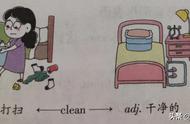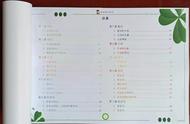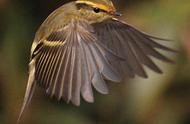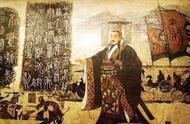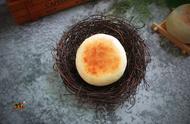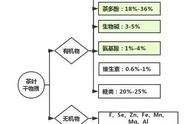5)“单形复义”的名词
集体名词如people(人们),police(警察、警察部门),cattle(牛群)等本身就是复数,表示整体概念,因此当想要表示其中的个体时,不能说 a people,a police,a cattle,但可以说 a person,a policeman,a head of cattle.
There was only one person in the room. 房间里只有一个人。
There were many people in the room. 房间里有很多人。
有些集体名词在指代一个单位、机构或视为一个整体时,表示单数意义,做主语时,谓语动词用单数形式;若强调该集体中的各个成员,表示复数意义,做主语时,谓语动词用复数形式。这类名词常见为:class班级(同学) team组(员) family家庭(家人) group组(员)
The family is not large.(指家庭整体)
The family are all music lovers.(指家庭成员)
There are about 20 families in the village. (家庭数目)
6)以s结尾,仍为单数的名词,如:
① maths,politics,physics等学科名词,为不可数名词,是单数形式。
② news 是不可数名词。
③ the United States,the United Nations 为一个国家或机构的名称,应视为单数。
The United Nations was organized in 1945. 联合国是1945年组建起来的。
④ 以复数形式出现的书名,剧名,报纸,杂志名,也可视为单数。
Green’s Fairy Tales is a very interesting story-book. 《格林童话》是一本非常有趣的故事书。
7) 复合名词变成复数时,有下列三种情况:
① 通常在主体名词词末加s;没有主体名词,直接在词尾加s。 如
bedroom-bedrooms(卧室),boyfriend-boyfriends(男朋友)
grow-up:grow-ups(成年人)babysitter-babysitters(保姆)
take-off: take-offs(起飞)
② 以”名词 介词或介词短语”构成的复合名词,将主体名词(或中心名词)变为复数
如son-in-law/sons-in-law(女婿) comrade-in-arms/ comrades-in-arms(战友)
③ “man/woman 名词”构成的复合名词,两个词均变为复数。
woman doctor-women doctors man servant-men servants
④ 以-man/woman/child结尾的复合名词, 将-man/woman/child变为复数
Fireman/firemen(消防员) chairwoman/chairwomen(女主席)
Horseman/horsemen(骑兵) grandchild/grandchildren(孙子、孙女)
8) 意义不同,复数形式不同的名词
① fish表示“鱼”的条数时,单复数同形;表示“鱼”的种类时,复数形式为fishes;
表示“鱼肉”时,为不可数名词,无复数形式。
My father keeps three fishes in the fishbowl.
我爸爸在鱼缸里养了3种鱼。(表示种类,可数)
I don’t like smoked fish. 我不喜欢吃熏鱼。(表示鱼肉,不可数名词)
种类相同的三条鱼-three fish 三条鱼
种类不同的三条鱼-three fishes 三种鱼
② people表示“人民、人们”时为集体名词,谓语动词用复数;表示“民族”时,为可数名词,其前可用不定冠词,单数形式为people,复数形式为peoples
At least 50 people lost their lives in the fire. 至少50个人在大火里丧命。
The Chinese are a hard-working people. 中国人是一个勤劳的民族。
The English-speaking peoples share a common language. 讲英语的各民族拥有共同的语言。
③ work 表示“工作”时,为不可数名词(由work组成的复合名词homework, housework等单词也不可数)
表示“著作,作品”时,是可数名词,单数形式为work,复数形式为works.
You can find many works by Lao She in the bookstore.在书店里你可以找到很多老舍的作品。




